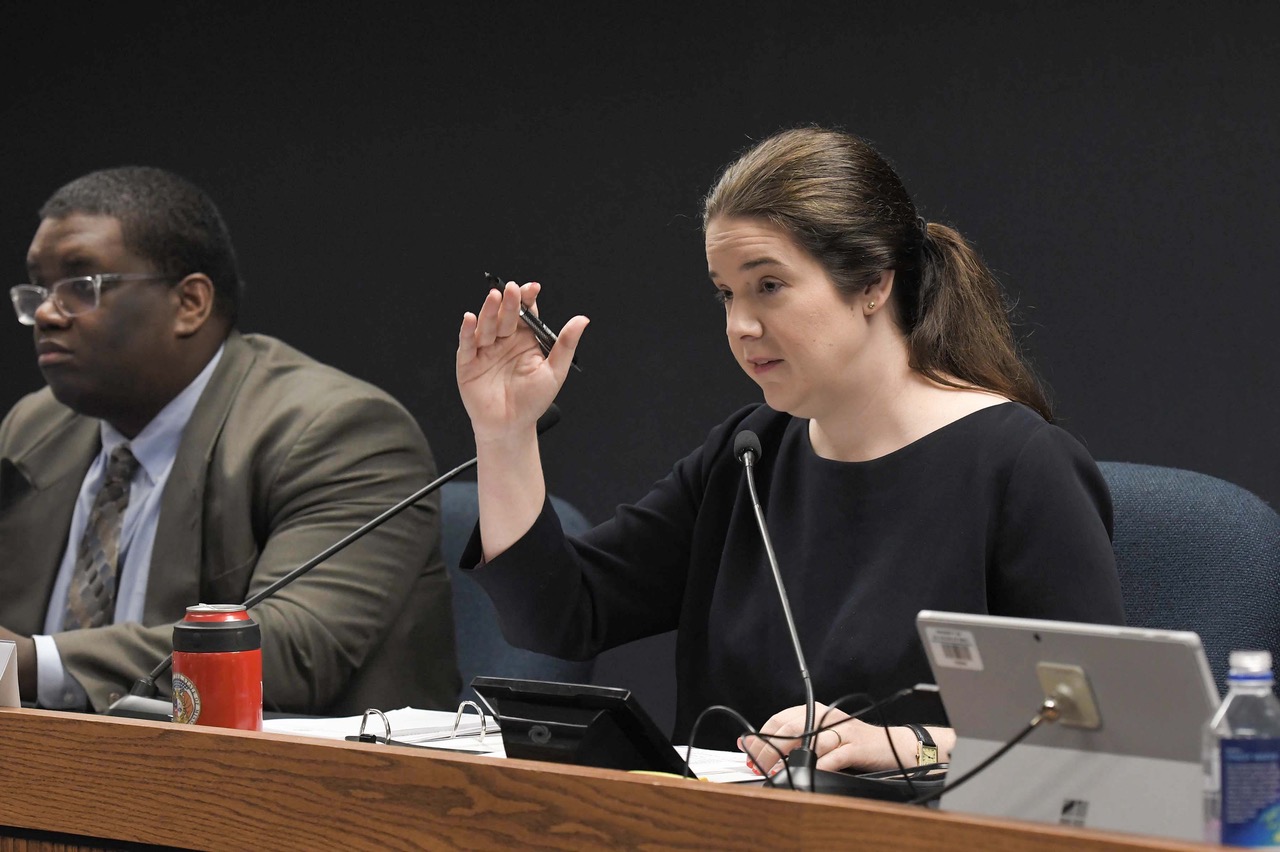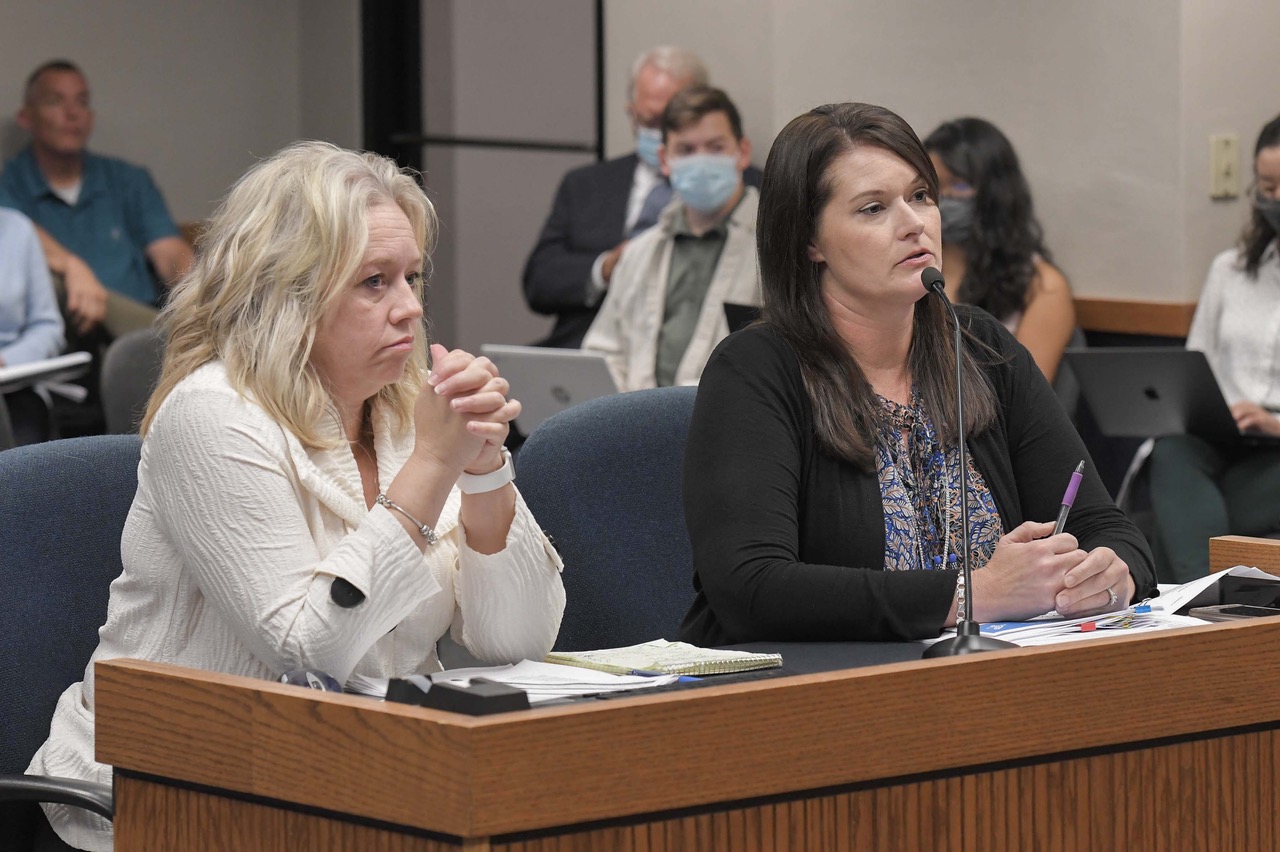JEFFERSON CITY, Mo. — Top Department of Social Services officials blamed a previous administration’s policies in the wake of a damning federal report saying Missouri failed to adequately protect or locate children who went missing from foster care.
Federal regulators also said the state failed to provide appropriate medical or mental health treatment when located.
Appearing before the House Children and Families Committee Tuesday morning, DSS Acting Director Jennifer Tidbal and Children’s Division Interim Director Joanie Rogers pointed to a 2016 “stop doing” memo to Children’s Divison staff. The memo said staff should still assess families’ needs but would no longer need to complete a strengths/needs assessment report.
Rogers said that memo led to an expectation that documentation was “optional.”
“This is a pervasive practice as a result of this list — do the work, but documenting it into our system of record is optional regardless,” Rogers testified during the two-hour hearing.
The report from the U.S. Department of Health and Human Services Office of Inspector General (OIG) released last week analyzed Missouri’s cases in 2019.
Tidball took over as acting director in 2019 after previously serving as acting director in 2017. She previously was the department’s director of the Division of Finance and Administrative Services.
Rogers joined the Children’s Division from outside the agency in September 2020.
Rep. Keri Ingle, the ranking minority member of the committee, pushed back on the narrative that there was an expectation to skip the documentation process. She said she worked at the Children’s Division during the time of the federal report and “documentation was definitely not optional.”

The federal report said 978 children went missing at some point from foster care in Missouri in 2019. DSS officials told lawmakers they could not identify where regulators found that number.
The report said in the 59 cases of missing children it reviewed, 49 were identified as being at a higher risk of potentially going missing but only seven of those children received services to reduce that risk.
And nearly half of those children weren’t even reported as missing — to local law enforcement officials or the National Center for Missing and Exploited Children — the report found. Additionally, for 1 in 3 children reviewed by federal regulators, required health and safety checks upon their return to foster care were not provided.
One child identified by regulators had been sexually exploited in at least four states while missing, but there was no evidence that the child was reported as missing, the report said.
Rep. Mary Elizabeth Coleman, who chairs the committee, said the report had people “alarmed” by its scope and volume.
Tidball said the department is working on implementing “checks and balances that are consistent throughout the state.”
“The number of kids on run, it’s something … that probably does not happen frequently in a caseload so sometimes I question why a worker wouldn’t have asked more questions about what needed to happen in that process because it isn’t something you see all the time,” Tidball said.
Tidball said the OIG report asked the department to differentiate between children who are “on the run,” have been kidnapped by their parents, or are living in an unapproved placement such as a significant other’s house.
She said if a child is in an unapproved place, there’s no way to ensure that person’s safety so the Children’s Division can then petition the court to be released from jurisdiction or request a court order into a placement. The division can also request to be released from jurisdiction if the person is at least 18 and able-bodied.
“At some point, they’re making a decision as to whether or not they want the care, and that decision when they ran seems to be what that is,” Tidball said.
However, Coleman pushed back: “The concern that I have is if you’re saying you don’t know where the child is and you haven’t made contact with them, how you can determine whether they ran away of their own volition.” She said that question has not been “well answered.”
“Even a runaway child is of incredible concern because we know based on FBI reports that that is the primary source of children who are exploited and trafficked,” she added.
Tidball said the department compiles a daily “run list” of children. As of Tuesday morning, 95 children were on the list. She said she believes most of them to have been on the run during the past few months.
The children identified as missing in the federal report are no longer included on the run list, Tidball said, because they have either been found or the court has released the state of its jurisdiction.
During the hearing, lawmakers expressed frustration when Tidball or Rogers could not provide answers to their questions. The pair also left after they finished testifying but before the hearing was concluded.
“We have a huge problem,” Rep. Dottie Bailey, a Republican member of the committee said. “We need to abide by state and federal law because, for one, we might not get funding. If this goes on and more kids are sex trafficked out of foster care, what do we do?”
“Kids are getting [to be] made prostitutes. and I don’t like it. I don’t know where we go from here,” she said. “It’s just disturbing.”
Kelly Schultz, director of the Office of Child Advocate, independent of DSS, said she believes Missouri’s agency is “in duress.” She pointed to a high volume of turnover at the director level, changes in operations, and COVID-19 as impacting frontline workers.
“You’ve just got this perfect storm going on in addition to factors that aren’t just specific to Children’s Division,” Schultz said, pointing to hiring issues.
After the hearing, Coleman told reporters there would be more hearings during the interim with the plan for the committee to submit a report to the full General Assembly.
“The concern is that they’re not following state and federal law, and they’ve lost almost 1 in 20 children in the foster care system at some point. That is an incredible risk, not just from a humanitarian standpoint but from a financial and budgetary standpoint,” Coleman said. “We do have audits and if 1 in 20 children is not receiving care whose coming in at some point, that financially is going to be a big hit as well. We’re going to continue to work and see what pressure we can put on the department to follow state and federal law.”

Kaitlyn Schallhorn was the editor in chief of The Missouri Times from 2020-2022. She joined the newspaper in early 2019 after working as a reporter for Fox News in New York City.
Throughout her career, Kaitlyn has covered political campaigns across the U.S., including the 2016 presidential election, and humanitarian aid efforts in Africa and the Middle East.
She is a native of Missouri who studied journalism at Winthrop University in South Carolina. She is also an alumna of the National Journalism Center in Washington, D.C.
Contact Kaitlyn at kaitlyn@themissouritimes.com.
























